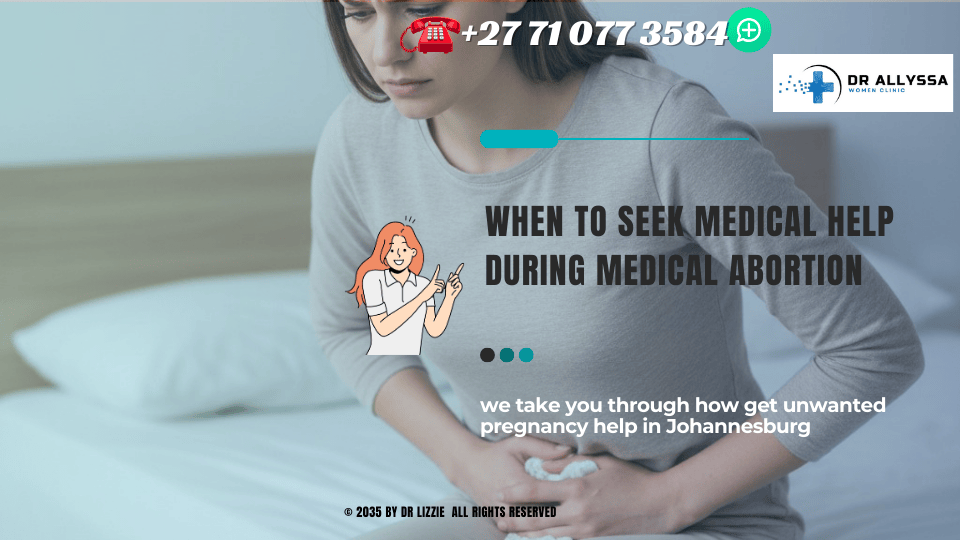Finding the right abortion clinic in Pretoria is crucial for ensuring safe and compassionate care....
Recognizing Signs of Incomplete Abortion After Misoprostol

Understanding the critical signs of an incomplete abortion after using Misoprostol is essential for timely and appropriate medical intervention.
Understanding Misoprostol and Its Role in Medical Abortion
Misoprostol is a medication used in combination with Mifepristone to induce a medical abortion, typically in pregnancies up to 10 weeks. It works by causing the uterus to contract and expel its contents, mimicking the process of a miscarriage. This method is considered safe and effective when used correctly under medical supervision.
At Allyssa Women’s Clinic, we prioritize providing comprehensive information and support to ensure that patients understand the process, expected symptoms, and necessary follow-up care. Misoprostol is administered after an initial dose of Mifepristone, and patients are monitored closely to manage any potential complications.
Common Symptoms Post-Misoprostol: What’s Normal?
After taking Misoprostol, several symptoms are expected and indicate that the medication is working. Common symptoms include cramping, bleeding, and the passage of clots. These symptoms are typically more intense than a normal menstrual period but should gradually subside over a few days.
Other normal symptoms may include nausea, vomiting, diarrhea, and mild fever or chills. These side effects are usually temporary and manageable with over-the-counter medications and rest. It is important to keep in contact with your healthcare provider to discuss any symptoms and receive guidance on managing discomfort.
Key Signs Indicating an Incomplete Abortion
An incomplete abortion occurs when the pregnancy tissue is not fully expelled from the uterus. Key signs of an incomplete abortion include prolonged or heavy bleeding, severe abdominal pain, and the passage of large clots or tissue fragments. Additionally, persistent pregnancy symptoms such as nausea and breast tenderness may indicate that the abortion was not complete.
If you experience any of these signs, it is crucial to seek medical advice promptly. An incomplete abortion can lead to infection and other complications if not addressed. At Allyssa Women’s Clinic, we provide follow-up care to ensure patient safety and complete the abortion process if necessary.
When to Seek Immediate Medical Attention
Immediate medical attention is necessary if you experience heavy bleeding (soaking more than two sanitary pads per hour for two consecutive hours), severe abdominal pain that is not relieved by pain medication, a high fever (over 100.4°F or 38°C) lasting more than 24 hours, or foul-smelling vaginal discharge. These symptoms may indicate severe complications such as infection or hemorrhage.
Do not hesitate to contact your healthcare provider or visit the nearest emergency room if you experience any of these symptoms. Prompt medical intervention is essential to prevent serious health risks and ensure complete recovery.
Preventive Measures and Follow-Up Care
To prevent complications, it is important to follow all medical instructions carefully, attend scheduled follow-up appointments, and take prescribed medications as directed. Your healthcare provider may recommend an ultrasound or blood test to confirm that the abortion is complete.
At Allyssa Women’s Clinic, we offer comprehensive post-abortion care, including counseling and support to address both physical and emotional recovery. Our team is dedicated to ensuring your well-being and providing the necessary resources for a safe and effective abortion experience.
.png?width=200&height=65&name=Untitled%20design%20(68).png)
.png?height=200&name=Female%20medical%20doctor%20sitting%20in%20her%20office%20at%20Allyssa%20Women%20Clinic%20(1).png)

